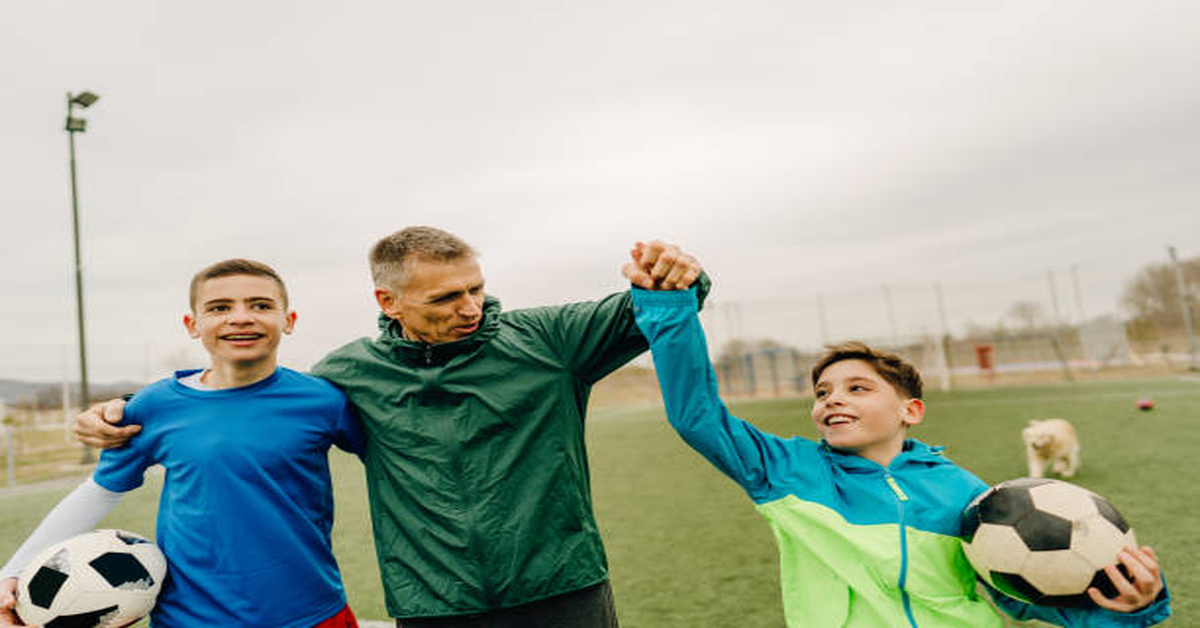
Football is more than a game; it is an emotion, a lifestyle, and in many ways a universal language. Across countries and cultures, football connects people through its excitement, its challenges, and its capacity to foster unity. The phrase Football Bros captures this essence by highlighting the brotherhood that forms through the sport. Whether it’s siblings playing together in a backyard, teammates who grow as close as family, or fans who unite in support of their clubs, the idea of Football Bros is about more than winning or losing—it is about shared passion, resilience, and unbreakable bonds.
This article explores the philosophy and practice of Football Bros in depth. We’ll look at its meaning, how brotherhood influences the game, its impact on players’ psychology and performance, the stories behind sibling duos, the technical aspects of teamwork, and how this concept extends from grassroots football to professional leagues.
Understanding the Concept of Football Bros
Football Bros refers to the bond between players that resembles brotherhood, regardless of whether they are related by blood. On one hand, it can describe siblings who play football together, often inspiring fans with their natural chemistry and shared understanding of the game. On the other hand, it also refers to teammates who develop brotherly ties, supporting each other on and off the pitch.
Unlike individual sports where focus is solely on personal excellence, football is inherently team-based. Success in football comes from collaboration, trust, and mutual respect. These are the very values that define brotherhood. Football Bros therefore represents the perfect blend of competitive spirit and personal loyalty.
The Role of Brotherhood in Football
Brotherhood has a powerful role in shaping how football is played. Players who view their teammates as brothers tend to communicate better, coordinate movements naturally, and maintain trust under pressure. Consider how defenders cover for one another, midfielders synchronize passes, and forwards anticipate each other’s runs.
This sense of brotherhood provides several key advantages:
- Psychological Strength – A strong support system helps players overcome setbacks such as injuries, losses, or criticism.
- Increased Motivation – Playing for one another boosts energy and determination.
- Resilience in Adversity – Teams with a brotherly bond often show greater comeback ability when facing defeat.
- Emotional Fulfillment – The joy of winning together and the shared pain of losing make experiences deeper and more meaningful.
Famous Sibling Duos in Football
The concept of Football Bros often finds its most visible expression in real-life sibling partnerships who have played professionally.
| Siblings | Notable Contribution |
|---|---|
| Gary and Phil Neville | Represented Manchester United and England, known for their defensive consistency. |
| Eden and Thorgan Hazard | Belgian brothers showcasing flair, creativity, and attacking talent. |
| Frank and Ronald de Boer | Dutch duo known for their synergy at Ajax and the national team. |
| Jerome and Kevin-Prince Boateng | Unique case of brothers representing different national teams (Germany and Ghana). |
| Kolo and Yaya Touré | Both played for Manchester City, contributing defensive strength and midfield power. |
These sibling duos not only highlight footballing talent but also prove how deep family connections influence chemistry on the pitch.
Brotherhood Beyond Blood
Football Bros is not limited to family. Many legendary partnerships between teammates demonstrate brotherhood forged through shared effort. For example, the bond between Xavi and Iniesta at Barcelona exemplified telepathic understanding, while defenders like Puyol and Piqué built walls of trust at the back.
In such cases, years of training, victories, and losses together create relationships as strong as family ties. For players, this bond transforms the experience of football from a career into a lifelong brotherhood.
Team Spirit and Football Bros
Team spirit is the backbone of Football Bros. It ensures that no player feels isolated and that the collective effort always outweighs individual ambition. The best teams in history—whether it’s Brazil 1970, Spain 2010, or club teams like Barcelona 2009—succeeded not just because of talent but because of their unity, discipline, and shared vision.
Team spirit emphasizes that:
- Every player is equally important.
- Mistakes are owned collectively rather than blamed individually.
- Celebrations are shared, making victories sweeter.
Football Bros reinforces these values by reminding players that their success depends on brotherhood and trust.
Technical Importance of Brotherhood in Football
While the idea of Football Bros may seem emotional, it also has a technical impact on performance.
| Technical Area | Role of Brotherhood |
|---|---|
| Passing Accuracy | Players anticipate each other’s moves more accurately when they share trust. |
| Defensive Cohesion | Defenders who rely on each other maintain better shape and cover gaps effectively. |
| Attack Combination | Forwards with strong chemistry produce fluid one-twos and coordinated runs. |
| Game Management | Teammates support each other under pressure, preventing rash decisions. |
| Leadership | Veteran players mentor younger teammates as brothers, ensuring knowledge transfer. |
Thus, the spirit of brotherhood enhances not only morale but also measurable gameplay.
Grassroots Football and the Idea of Football Bros
At the grassroots level, the Football Bros concept is especially powerful. Young players often start their journeys alongside siblings, cousins, or friends from the same neighborhood. The sense of belonging and shared dreams fuels their dedication.
In many communities, football provides an escape from hardship. Brotherhood built through football keeps young players disciplined, motivated, and connected to positive environments. Local clubs thrive because of this unity, and many professionals credit their early football brothers for shaping their careers.
Football Bros and Fans
Brotherhood is not limited to players; fans also embody Football Bros. Supporters often refer to one another as brothers and sisters in football because the shared love for a club or national team creates a sense of family. Singing anthems together, traveling for matches, and standing united in victory or defeat illustrates how deeply this bond extends into society.
Psychological Dimensions of Football Bros
The psychological benefits of brotherhood in football are immense. Sports psychology shows that players with strong interpersonal bonds experience reduced stress, greater confidence, and stronger resilience to pressure. When players know their teammates have their back, they feel freer to express creativity and take risks.
Brotherhood also helps in recovery from injuries, where teammates provide emotional support. It encourages positive mental health, ensuring that players cope with the intense demands of professional sport.
Football Bros and Leadership
Strong leaders in football often embody the Football Bros philosophy. Captains like Paolo Maldini, Steven Gerrard, and Lionel Messi have shown that leadership is not about control but about caring for teammates like brothers. By creating trust, they inspire their teams to give their best.
Leaders who embody brotherhood focus on fairness, encouragement, and setting examples rather than issuing orders. This creates long-term stability and harmony within teams.
Challenges in Maintaining Brotherhood
While the idea of Football Bros is powerful, it is not without challenges:
- Competition: Rivalry for playing positions can create tension.
- Ego Clashes: Star players sometimes struggle to put team above self.
- Cultural Differences: In global teams, language and cultural barriers may affect bonding.
- External Pressure: Media scrutiny and financial interests can weaken unity.
Overcoming these challenges requires strong management, open communication, and constant reinforcement of team values.
The Future of Football Bros
As football becomes increasingly globalized, the Football Bros concept will only grow stronger. International tournaments, youth academies, and cross-border clubs are bringing diverse players together. Brotherhood will be essential for maintaining unity among players from different backgrounds.
In the future, Football Bros will extend beyond the pitch, symbolizing football’s power to connect humanity itself. Programs that use football for social change—such as community projects and peace initiatives—are already proving that the brotherhood created by football can positively impact society.
FAQs
Q1. What does Football Bros mean?
Football Bros refers to the brotherhood that develops in football, whether through siblings playing together or teammates forming family-like bonds.
Q2. Are there real-life Football Bros examples?
Yes, famous sibling duos like the Neville brothers or Hazard brothers highlight this, along with strong teammate partnerships like Xavi and Iniesta.
Q3. How does brotherhood improve performance in football?
Brotherhood enhances trust, passing accuracy, defensive cohesion, and psychological resilience, leading to better overall team performance.
Q4. Is Football Bros only about players?
No, it also extends to fans and communities who unite in their passion for football.
Q5. What challenges affect Football Bros?
Rivalries, egos, cultural differences, and external pressures can weaken brotherhood, but strong leadership helps overcome them.







